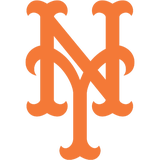
Players' union unaware banned Mejia had concerns, director says

PORT ST. LUCIE, Fla. -- The head of the major league players' union says he wasn't aware of any concerns raised by suspended New York Mets reliever Jenrry Mejia about his legal defense.
Mejia drew a lifetime ban from Major League Baseball last month after testing positive for a performance-enhancing substance for the third time.
Last week, Mejia told The New York Times that he was the victim of a "conspiracy" by MLB and the union should have done more him.
"They should have found something to appeal for," the pitcher said.
Union executive director Tony Clark spoke to Mets players Sunday morning as part of his regular tour of all spring training camps.
"Any time there's a concern from a player about a situation related to the support that he feels he got or didn't get, it's concerning," Clark said. "But we are confident that we take every care seriously and provide the support from start to finish for players. Being a player, you can trust that that is the case."
"Any joint drug agreement case has a start and either an end related to an arbitration hearing or a settlement, so there are opportunities to communicate throughout. Those concerns weren't anything we aware of during the course of this process," he said.
Mejia was suspended for 80 games last April 11 following a positive test for Stanozolol. He returned July 12, appeared in seven games for New York, then was banned for 162 games on July 28 after a positive test for Stanozolol and Boldenone. The 26-year-old pitcher received a lifetime ban in February after testing positive for Boldenone.
Major league players and teams agreed in November 2005 that a third positive test for PEDs would result in a lifetime ban.





